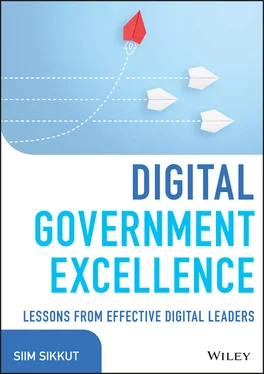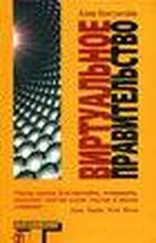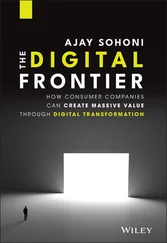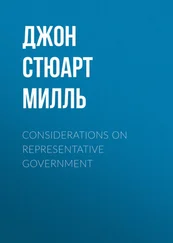1 ...6 7 8 10 11 12 ...25 I would hope that even politicians, especially ministers in charge of digital government area in their jurisdiction, and parliamentarians could also find this book useful. If they want to up their government's digital game, here they can get a glimpse on what kinds of leaders to select and how to best empower them or work with them.
In addition, the book could be useful for anyone studying the field, whether in academic circles, where there is a growing number of professors teaching digital government courses around the world, or to their students (especially graduate level). Or to a growing number of researchers studying and doing reports as analysts in the field of digital government lessons and success. I hope that you can include the leadership and management aspects more now.
For the same reason, I do see that consultants and experts who increasingly work on advising digital government initiatives and teams around the world, from national to local levels (including in international organizations), should also find the book to be of great use. If you do not include leadership aspects in your advice, you are doing your clients and their countries a disservice!
Last but not least: some bits and parts, the book can be useful beyond the public sector sphere. I believe that practitioners, consultants, academics working on and studying digital transformation and digital leadership in any sectors, especially in big corporate settings, can find several insights relevant to their work. The lessons learned and practices shown are often not government-specific at all; they are universally applicable to any digital change team or leadership role. In exactly the same way, the practice of digital strategy and delivery in government has benefited from learning from private sector examples.
Structure of the Chapters
All twenty stories, or interview chapters, are largely structured similarly, with some questions common for each person and some specially catered to their background or depending on how the conversation went.
Each story covers the following themes:
The person's background: what led them to taking the digital government leader's job? What was their past experience and motivation for it?
Context: what was the digital government situation and setup at the time? What were the challenges and political issues that needed tackling?
Starting the job: first hundred days and sequencing of steps
Vision and strategy: their ambition, the key initiatives that they set out to do—what were their mandate and levers for it?
Leadership style and practices: routines with the team or building a team and its culture, the values or practices they tried to instill
Successes and failures: lessons learned from them and from the time in office
Transition: leaving and how to make changes stick
Key recommendations: for all peers doing the same job—what does it take to be an effective digital government leader?
Most of the interviews were done between August and September 2021, so COVID-19 was a theme we touched on as a special focus with leaders who had been most recently or still were in the job, sharing how they coped with it in their role and strategy.
Each chapter is accompanied by a short background story on why I chose this person for the book. My attempt with these sections is to try to pass on what is special about that particular leader and what to look for in the chapter that follows.
You will find a short epilogue in way of a summary, where I have tried to distill a few of the biggest common learnings and takeaways from the twenty stories. This epilogue aims to provide the shorthand playbook on key themes of how to be or become an effective leader to drive a government (or any organization) to digital excellence.
CHAPTER 1 Aisha Bin Bishr: Dubai, United Arab Emirates (UAE)
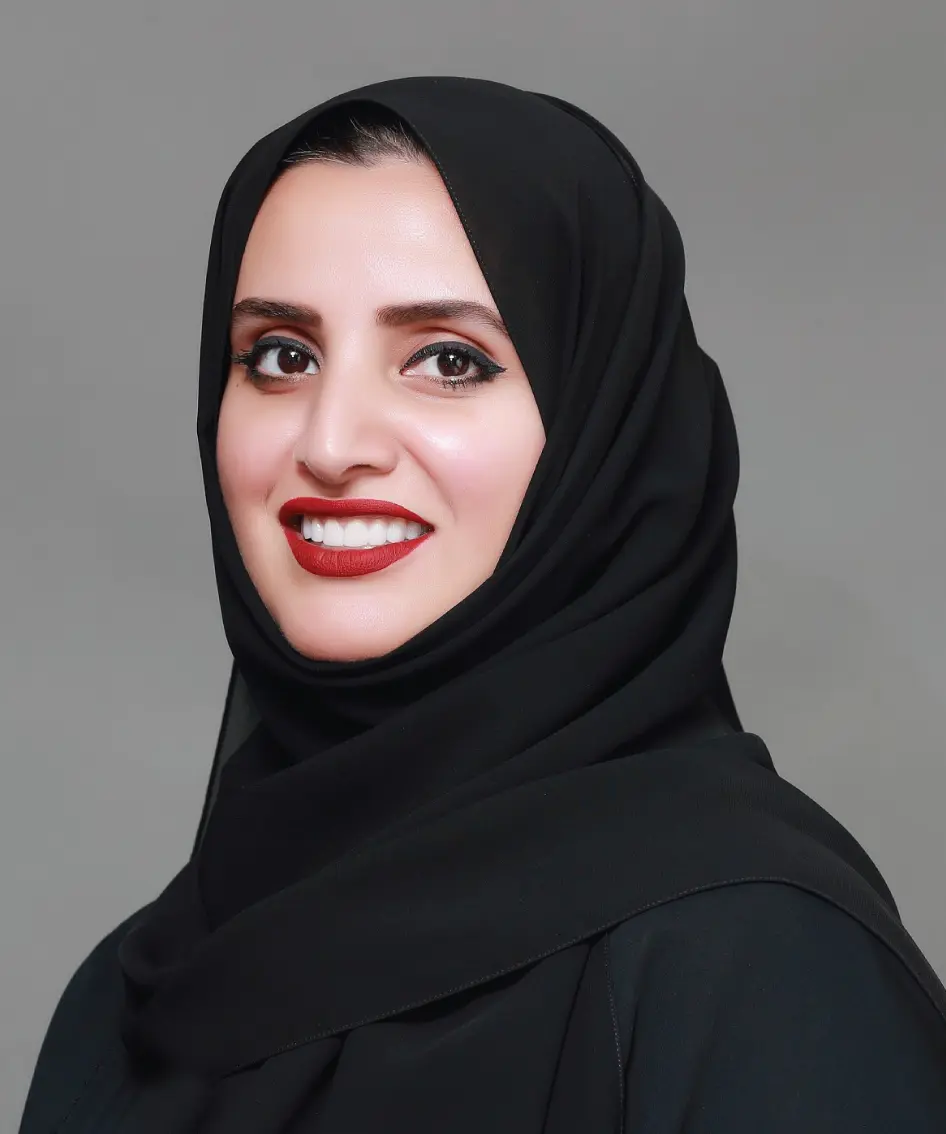
Her Excellency Dr. Aisha Bint Buti Bin Bishr has been the vice chairman of Emaar Development Board since December 2020. She was the founding Director General of the Smart Dubai Department, UAE between 2015 and 2020, the government entity entrusted with Dubai's citywide smart digital transformation.
During that time, Aisha was a member of various boards, including the Dubai Future Council for Blockchain as its chairperson, World Happiness Council, World Economic Forum's Global Future Council, and many more.
Prior to her Smart Dubai role, Aisha served as the Assistant Director General of Dubai Executive Office and Assistant Undersecretary of the UAE Ministry of Labour. Throughout her twenty-seven-year experience in ICT development, Aisha committed herself to humanizing digital transformation, from developing technologies to transforming human experiences.
She is considered among the world's most acclaimed digital transformation and smart cities thought leaders. Forbes Middle East ranked her among the Middle East's top ten most powerful businesswomen in 2020. She has received numerous accolades and awards, especially for her leadership as the first woman to lead the transformation of a smart city globally.
Aisha stands out in this book, because she is the only one among the twenty people featured here who was a digital government leader on a city level. There are also many other great city digital leaders, of course, but Aisha has been the most exceptional of those I have encountered .
One reason is to simply take a look at what Dubai has achieved on the smart city front during her time. These have not just been flashy showcase works, but systemic change and at breakneck speed .
Aisha really has been at the helm there, (re)defining in the process globally what a smart city is and should be about—the widespread application of digital tools in government for real advancement of peoples' lives in a city. She managed all this with zero initial budget, the context of top-down governance, and as a strong woman in a classically very male environment .
In addition to all that leadership courage and acumen, she is also the most caring leader you can imagine. It manifests even in the slightest of encounters with her, including in this chapter .
—SIIM
How Did You Rise to the Digital Government Leadership Role in Dubai?
I am a curious person by nature, and this characteristic fed my interest in technology as early as my school years. I remember that day when my brother brought an early-generation PC home: I immediately fell in love with the machine. This is a simple example of the accumulating passion to technology discovery that I had and still have. I did not like technology for itself but what technology can do, and the solutions built with it and around it. I believe this was the flame igniting where I have reached today.
My major at university was business information technology: how we can apply ICT to help businesses to fulfill their targets and objectives. I was attracted to how we can utilize such innovative ideas and tools for advancing government and its services.
This was the concrete area for my PhD, after which I was appointed to work with the Executive Office under His Highness Sheikh Mohammed bin Rashid Al Maktoum, UAE Vice President, Prime Minister, and the Ruler of Dubai. The office is a think tank with responsibility to bring ideas to implement in Dubai to take the emirate ten years ahead. Many bold ideas, such as the Internet City or the Dubai International Financial Center, came out of that office before. 1 I worked in different projects, none of which was an ICT project per se.
About 2014 or so smart city ideas became trendy across global conferences. It was attractive to us in Dubai, and we started looking at how a smart government or a smart city would be different from having an e-Government. Because I had the background, His Highness Sheikh Mohammed bin Rashid Al Maktoum appointed me to lead the Smart Dubai project, which was called initially Smart Dubai Office. I was the first woman globally to be commissioned with such a mandate.
Читать дальше
